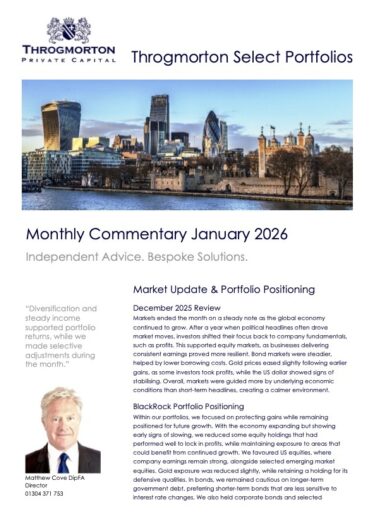Our monthly portfolio positioning commentary.

Markets ended the month on a steady note as the global economy continued to grow. After a year when political headlines often drove market moves, investors shifted their focus back to company fundamentals, such as profits.
Markets were volatile during November, moving up and down in response to news and economic developments, but overall were little changed by the end of the month.
This month, markets were shaped by steady economic signals and clearer policy conditions.
Markets moved higher in September as the US Federal Reserve delivered its first interest rate cut of the year. Lower borrowing costs improved funding conditions and boosted demand for both equities and bonds, lifting investor confidence. The US economy remained resilient, with strong data reassuring investors that growth remains on track even as inflation eases.
Markets delivered positive returns in August, supported by resilient economic data and strong company earnings. Japan was a standout, with equities rising strongly after the conclusion of a new trade deal with the US and GDP growth that exceeded expectations. These developments added confidence to the broader outlook for global growth.
Market Update & Portfolio Positioning
July 2025 Review
Global markets were supported by positive developments last month. The US has made trade agreements with Japan, the EU, and Vietnam which bolstered investor confidence and lifted equity markets. Furthermore, roughly 80% of US companies exceeded Q2 earnings expectations. Emerging Markets also benefited from increased investor risk appetite.
June was a broadly positive month for financial markets, as easing trade tensions, central bank support, and stronger investor sentiment boosted risk assets. Developed market equities posted solid gains. US equities led the way, supported by renewed optimism in trade negotiations. Japanese equities also advanced, while UK and European markets lagged.
